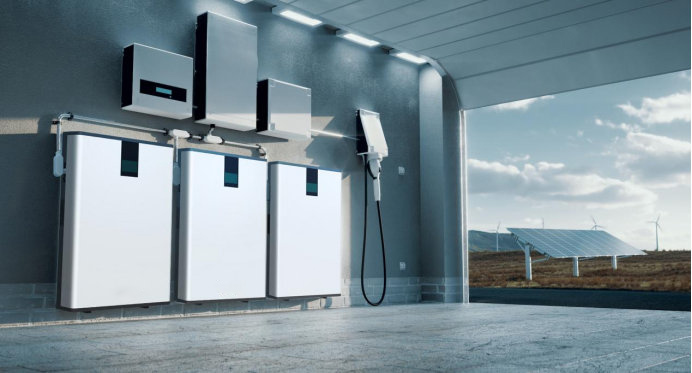As we witness the rapid evolution of solar energy storage technologies, home battery systems are emerging as a mainstream solution, especially amid the accelerating transition to renewable energy. Traditionally confined to off-grid solar setups, recent advancements in lithium battery technology have sparked a surge in interest. Homeowners now seek to store surplus solar energy, enhance self-consumption, and bolster their energy independence. Furthermore, in the face of increasing extreme weather events leading to widespread blackouts, households and businesses are exploring ways to secure a reliable electricity supply during prolonged disruptions.
Exploring Advantages and Disadvantages
In this comprehensive article, we delve into the multifaceted world of home battery systems, examining their advantages and disadvantages. We provide a detailed battery cost guide, present alternative options to battery usage, and conduct a thorough comparison of leading battery storage systems suitable for both off-grid and on-grid solar configurations. Whether you’re new to solar or a seasoned enthusiast, we also offer insights into the basics of solar energy and various energy systems, including grid-tie, off-grid, and hybrid battery setups.
Understanding Different Battery Systems
The abundance of battery options and energy storage systems can be overwhelming, particularly with the rapid pace of technological advancements. The complexity is further heightened by the various battery configurations available in the market.
For personalized guidance, many turn to solar companies, but not all are well-versed in the diverse AC and DC-coupled battery configurations. This is where our expertise comes into play. The team at Clean Energy Reviews, with a rich history of installing and monitoring energy storage systems since 2014, offers valuable tools and detailed reviews to help you discern the most suitable battery type and size for your specific needs. While solar professionals can also provide valuable insights, our experience ensures a comprehensive understanding of the evolving landscape.
The Three Main Types of Batteries
- Lead-Acid Batteries: Traditionally used for off-grid power systems but have become less common today.
- Lithium-Ion Batteries: The most prevalent type, rapidly advancing due to benefits such as lightweight, scalability, high efficiency, and long life. Major players like LG and Samsung entered the market in 2015, gaining widespread attention with the release of products like the Tesla Powerwall.
- Flow Batteries: Primarily utilized for larger energy storage applications, gradually evolving in the market.
Considering the Economics
The cost-effectiveness of a home battery system is a subject of ongoing debate. The relatively high upfront costs and extended payback periods may dissuade some, but as solar feed-in tariffs decrease, the economic equation shifts in favor of batteries. Our free solar and battery calculator provides a comprehensive overview of the costs and savings associated with various battery systems.
While financial considerations are crucial, many purchasers prioritize factors beyond economics. From the satisfaction of contributing to a sustainable future to having a backup power source in emergencies, there are diverse motivations for investing in battery storage. In our view, self-sufficiency and energy security stand as valid reasons, significantly enhancing energy independence through solar and propelling the transition to a renewable-powered electricity system.
Advantages of Home Battery Systems
- Reduce Emissions: Minimize pollution and dependency on coal and gas-dependent power grids.
- Be Blackout Safe: Provide backup power during blackouts or emergencies.
- Reduce Cost: Save money by utilizing less energy from the grid.
- Become Energy Independent: Store excess solar energy to decrease reliance on the grid.
- Reduce Peak Demand: Support the grid during peak times and contribute to grid stability services.
Disadvantages of Home Battery Systems
- Higher Upfront Cost: Adds a significant amount to the total system cost.
- Complexity: Requires a hybrid inverter or additional monitoring equipment.
- Space Requirements: Demands more room and should be installed in a secure area away from direct sunlight.
In conclusion, as we navigate the evolving landscape of home battery storage, it becomes evident that the advantages far outweigh the disadvantages for those seeking a sustainable, reliable, and independent energy solution. Whether you prioritize environmental impact, blackout resilience, or reduced grid dependence, home battery systems offer a transformative pathway to a greener and more secure energy future.
